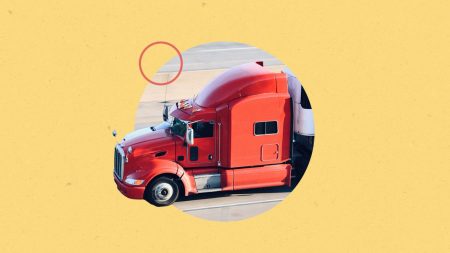kate_sept2004/GettyImages; Illustration by Hunter Newton/Bankrate
Key takeaways
- SBA Express and Export Express loans offer loans of $500,000 or less
- Express loans don’t need SBA review, speeding up the approval process
- Lender requirements can vary from lender to lender, so you may want to compare multiple lenders before making a decision
The Small Business Administration (SBA) offers loan programs to fund small businesses nationwide. They often have lower rates than many alternative lenders and even some banks, but they can take weeks or months to fund.
The Express loan program helps to significantly shorten the waiting time. Unlike with other SBA loans, lenders don’t have to get direct SBA approval for Express loans, which can significantly speed up the lending process. If your business needs a fast loan but wants to avoid the higher cost of working with an online or alternative lender, the Express loan program is worth considering.
What is an SBA Express loan?
An SBA Express loan is a working capital loan of $500,000 designed for small businesses. It is part of the 7(a) loan program. But unlike other loans offered through the 7(a) program, Express loans are faster business loans that can be funded within a few weeks.
Because Express loans don’t require direct SBA approval, lenders can follow their normal process for evaluating the loan. This streamlined process helps small businesses get approved for this loan more quickly than other SBA loans.
The amount you can borrow is limited to $500,000 or less, but you can use your funding for a variety of expenses, including working capital, expansion, equipment and debt refinancing. The amount the SBA guarantees is lower than its normal 7(a) loans, which only affects the lender’s decision-making for approving the loan. But for businesses that only need a small amount, they can be a handy way to get quick funding.
Types of SBA Express loans
Both SBA Express loans and SBA Export Express loans fall under the larger 7(a) loan program. They allow businesses to borrow the same amounts for similar rates and terms — but Export Express loans have larger SBA guarantees and are meant specifically for businesses that export products.
| Loan amounts | Interest rates | Loan terms | Maximum SBA guarantee | |
|---|---|---|---|---|
| SBA Express loan | $500,000 | 11% to 16% | Up to 10 years for term loans or lines of credit; 25 years for property purchases or improvements | 50% |
| SBA Export Express loan | $500,000 | 11% to 16% | Up to 10 years for term loans, up to 7 years for lines of credit | 90% for loans of $350,000 or less 75% for loans over $350,000 |
SBA Express loan
An SBA Express loan is similar to a standard 7(a) loan. While your business is limited to just $500,000 rather than the usual $5 million, the streamlined SBA approval time makes it ideal if your business needs faster funding.
And like 7(a) loans, interest rates can be variable or fixed based on the Prime rate plus a percentage. Rates are currently between 11.00 percent and 16.00 percent. Exact rates vary depending on the amount of the loan and the type of interest rate charged.
SBA Export Express loan
The Export Express loan is slightly different. They are only available for businesses that export products outside the U.S. So, while your business will have access to similar terms as an Express loan or 7(a) loan, it must meet the additional requirement of being involved in exports. Like the Express loan, the lender doesn’t need direct SBA approval and can use their usual processes for approving the loan.
SBA Express loan requirements
Since the SBA Express loan program falls under the 7(a) loan program, your business must meet the same minimum requirements to qualify.
- For-profit. Businesses must operate for profit in the U.S. or U.S. territories.Business size. The business must be defined as a small business, outlined in the SBA size requirements by industry.
- Other funding. Your business must have already applied for other loans and used other business or personal assets to qualify.
- Collateral. The SBA doesn’t require lenders to take collateral for loans of $50,000 or less. For higher loan amounts, lenders can use their usual policies for collateral, but can’t disapprove a loan due to lack of collateral.
- Other requirements — like minimum annual revenue, time in business and credit score — will depend on the lender you work with. In most cases, you will need to provide proof of steady cash flow and have a personal or business credit score in the good to excellent range.
Pros and cons of SBA Express loans
SBA Express and Export Express loans are some of the faster options on the market for SBA loans. Yet they are still difficult to qualify for and limit how much your business can borrow.
Pros
- Response time. Lenders don’t need the SBA to directly review the loan before approval. They are free to approve the loan using their usual processes, often leading to approvals that take a few weeks or less. This is significantly quicker than the weeks- or months-long waiting period for standard 7(a) or 504 loans.
- Long terms available. Businesses can choose between a line of credit with a seven- to 10-year maturity or a term loan that lasts up to 10 years.
- Variety of lender options. The SBA certifies a variety of lenders, including large banks and online lenders, that work in the alternative finance space.
Cons
- Smaller loan amounts. Express and Export Express loans have a quick response time but limit how much your business can borrow to $500,000.
- Down payment required. Like other loans, your business may need to make a down payment, such as 10 percent to 30 percent of the loan amount.
- Requirements set by the lender. The SBA has a few basic requirements businesses will need to meet, but most eligibility criteria are set by the lender, not the SBA. Lenders often want to see a moderate to strong financial profile when approving these loans.
How to apply for an SBA Express loan
The application process for SBA Express loans is similar to any other business loan. You will need to determine your business’s funding needs, check your eligibility and compare lenders before applying.
- Determine your business’s needs. Express loans are significantly smaller than other SBA loans, but many small businesses will benefit from loans of $500,000 or less. If you need more funding, you will need to consider a different loan option.
- Check your eligibility. You will meet the SBA’s small business size standards and operate for profit, along with other SBA and lender requirements to qualify for an Express loan. Reach out to the lender to find out their eligibility requirements for these loans.
- Fill out SBA Form 1919. In addition to other documentation, you will need to complete Form 1919. This form requests information about your business and personal information about each owner.
- Compare at least three lenders. Because of the wide variety of lenders that work with the SBA, you should compare three or more lenders before you apply. The SBA Lender Match tool can help you find a lender that fits your business.
- Apply and submit documentation. Next, you will need to apply for the loan and submit supporting documents that show your business’s finances, assets and how it will utilize the funding.
- Receive a loan decision. You should receive an approval decision from the lender within a few weeks, based on the lender’s usual timeline for processing loans.
Alternatives to SBA Express loans
The SBA requires business owners to exhaust other forms of financing before they can qualify for any 7(a) loan, including Express and Export Express loans. There are alternative lending options for your business that may be easier to qualify for, including:
- Fast business loans. A fast business loan can take a variety of shapes. Some are term loans, while others are lines of credit. Whichever you go with, you can expect a quick application process and a decision within a few days in most cases.
- Business credit cards. For smaller everyday expenses, you may want to consider a business credit card. These offer a less in-depth application process and may offer rewards for frequent use. Most business credit cards simply assess your credit score to determine if you qualify.
- Bad credit business loans. It can be more difficult to qualify for an SBA loan — especially if your business doesn’t have its own established score. So you may want to consider a bad credit business loan if you have a lower personal credit score.
- Cash advances. While not exactly loans, options like merchant cash advances and invoice factoring are quick options for business owners. While these loans tend to have lenient eligibility requirements, they often charge high fees and interest rates.
The bottom line
SBA Express and Export Express loans are ideal for small businesses needing fast funding. While they can be more difficult to qualify for than other fast business loans, their competitive rates and government-backed status make them a safe option for your business.
Frequently asked questions about SBA Express loans
-
It can be easier to qualify for an SBA Express loan as an established business with strong revenue and good credit. Actually receiving a loan may be more difficult. SBA loans are extremely competitive, and only about 26,000 businesses were approved for Express loan in the 2024 fiscal year, according to the SBA weekly lending report.
-
SBA microloans are some of the easiest SBA loans to qualify for because they tend to cater to disadvantaged businesses. They may have relaxed requirements for credit score, time in business and annual revenue. They also tend to offer educational resources to help your business succeed.
-
The SBA does not have a set minimum credit score for business owners. But the lender you work with might. In many cases, you will be required to have good to excellent credit — a FICO score of 670 or higher.
Read the full article here









